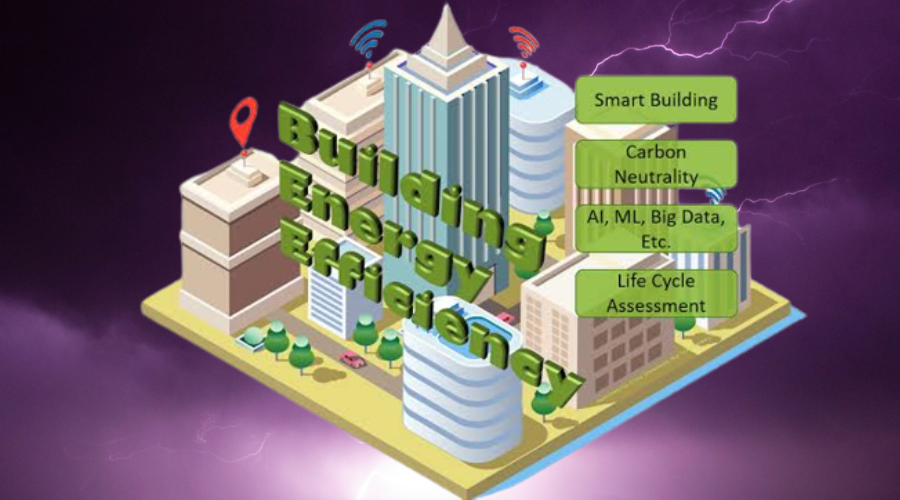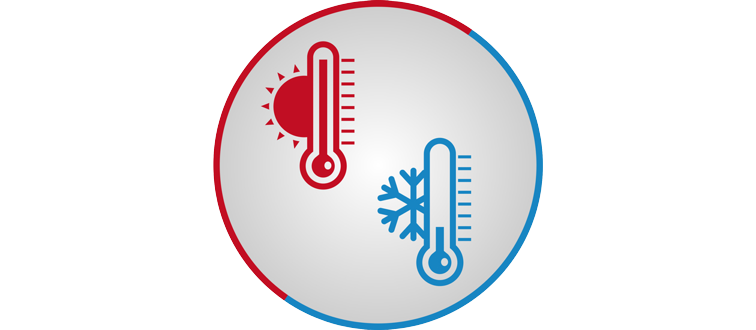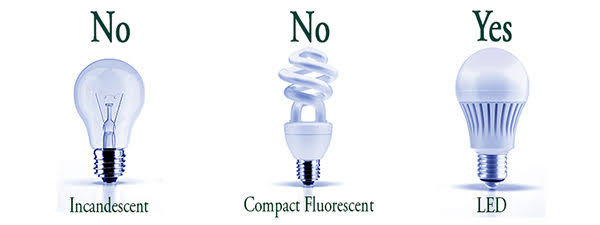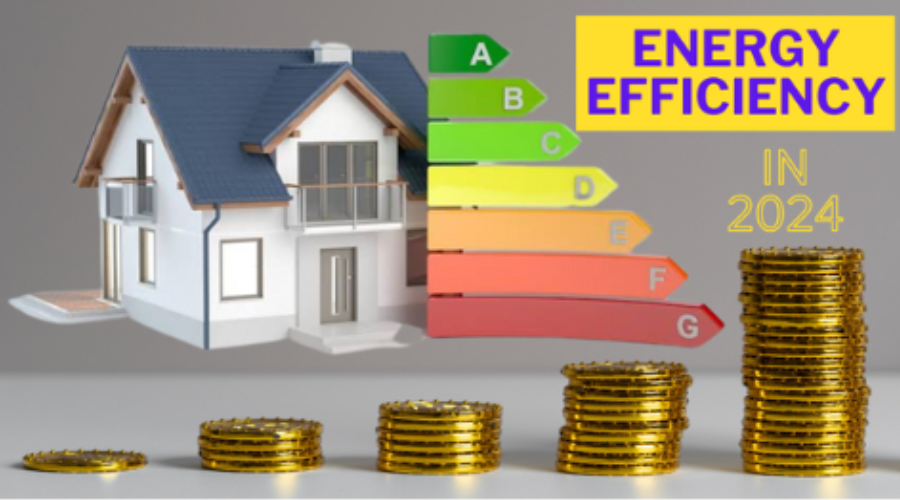What Is Energy Efficiency?


Energy efficiency holds significance in our efforts to minimize our footprint and address the increasing global demand, for energy. As we move towards an energy future it is anticipated that energy efficiency will continue to play a role in 2024. There are emerging trends and opportunities that can contribute to enhancing energy efficiency both within households and businesses.
The importance of energy efficiency cannot be overstated in todays world. With the growing population our energy requirements have also skyrocketed, leading to a strain on resources and exacerbating climate change.
Energy efficiency involves using energy while maintaining the level of service. It stands out as an approach to curbing greenhouse gas emissions and enhancing air quality at a cost. Looking ahead 2024 will witness an emphasis on the adoption of energy practices worldwide aiming to meet escalating global energy demands while minimizing environmental impact.
The integration of technology into homes and buildings holds promise, for improving energy efficiency. By leveraging automation and optimization techniques smart homes and buildings enable us to reduce our energy consumption thereby cutting down on costs associated with utilities.
Here are 6 ways that smart homes and buildings can improve energy efficiency in 2024:


- Smart thermostats are an innovation as they can learn your heating and cooling habits and adjust the temperature accordingly. This helps in saving energy by ensuring that your home is heated or cooled when necessary.
- When it comes to lighting you have the convenience of controlling them and even programming them to turn on and off automatically. This feature can significantly save energy by preventing lights from being left on when nobody’s around.
- To effectively manage energy consumption in structures, like buildings and hospitals building energy management systems (BEMS) play a crucial role. BEMS monitor and control energy usage, helping identify areas where wastage can be reduced.
- In addition to these technologies integrating smart homes and buildings into the concept of a smart grid opens up even more possibilities for efficient and sustainable energy use. The smart grid acts as a two way communication network that enables interaction between energy suppliers and consumers.
- One exciting aspect of integrating homes into the grid is their ability to store renewable energy from sources, like solar panels or wind turbines using batteries. This way any surplus power generated can be stored for use further promoting sustainability.
This energy can be utilized to provide electricity, for homes or buildings during periods when the sun is not shining or the wind is not blowing. - Smart homes and buildings are, in the phases of their development. They hold immense potential to transform how we utilize energy. By employing technology to automate and enhance energy consumption smart homes and buildings can aid us in diminishing our energy impact economizing on our energy expenses and fostering a future.
Here are some specific examples of how smart homes and buildings are being used to improve energy efficiency today:


In California there is a program offered by the Pacific Gas and Electric Company (PG&E) that gives rebates to customers who choose to install thermostats. This initiative has been highly beneficial helping PG&E customers save, than $1 billion in energy costs.
In New York the New York Power Authority (NYPA) has introduced a program that provides incentives to building owners who decide to install Building Energy Management Systems (BEMS). This program has proven successful in saving NYPA customers over $100 million in energy costs.
Moving over to Europe the Horizon 2020 research and innovation program is currently funding a project called Smart Cities Lighthouse. The primary focus of this project is to develop and showcase smart city technologies across 11 cities. One of the objectives of this endeavor is to enhance energy efficiency within buildings.
These examples highlight an instances where smart homes and buildings are actively contributing towards improving energy efficiency today. As advancements continue in the field of home and building technology we can anticipate more innovative and efficient methods, for utilizing energy effectively.
Energy Efficiency Benefits in 2024


Cost Savings
Saving energy can lead to cost reductions, for both businesses and homeowners. According to the American Council for an Energy Efficient Economy (ACEEE) implementing energy measures could result in savings of $215 billion for businesses and $170 billion for homeowners over the decade.
For instance a business that switches to energy LED bulbs in their lighting system could cut down their lighting costs by 50 70%. Similarly homeowners who insulate their attics and walls can potentially save up to 15% on heating and cooling expenses.
Environmental Benefits
Decreasing air and water pollution caused by power plants and other industrial facilities is influenced by energy efficiency. This reduction not affects the environment. Also has implications, for our healt . For instance coal fired power plants emit pollutants, like sulfur dioxide, nitrogen oxides and particulate matter.
These pollutants can contribute to issues, heart diseases and even cancer. By reducing our dependence on fuels through energy efficiency measures we can minimize these emissions. Enhance air quality
Community Benefits
Energy efficiency initiatives not offer advantages but also have positive effects on job creation and local economies. The energy efficiency industry provides employment opportunities, for millions of individuals worldwide. In the United States this industry supports 2.3 million jobs.
Efficiency programs, for energy can be beneficial in lowering the energy expenses for families and communities with incomes. This in turn allows them to have flexibility to allocate funds towards other essential needs, like food, housing and healthcare.
Resilience and Reliability
Boosting energy efficiency can bolster the resilience of our energy system making it less susceptible, to disruptions. For instance in the event of a power plant outage energy efficiency measures can curtail electricity demand. Facilitate a recovery for the grid.
Moreover energy efficiency plays a role in diminishing our dependence on imported oil and other fossil fuels. This not enhances the security of our energy system. Also shields it from price fluctuations.
Health Benefits
Energy efficiency contributes to health by reducing air and water pollution. Additionally it enhances the comfort and well being of households and workplaces.
For instance buildings designed with energy features are well insulated and equipped with ventilation systems. This helps mitigate air pollution while creating living and working environments.
Furthermore using energy appliances and equipment contributes to indoor air quality by minimizing emissions of volatile organic compounds (VOCs). VOCs can lead to health issues such as problems, headaches and nausea.
Overall embracing energy efficiency encompasses an array of advantages, for businesses, homeowners and communities alike. It not saves money. Also reduces pollution levels while generating employment opportunities and promoting public health.
We can enhance our energy security by focusing on energy efficiency. By reducing our dependence, on imported oil and other fossil fuels we can create a energy system that is less susceptible to price fluctuations and disruptions, in supply.
Difference between Energy Efficiency and Energy Conservation
Energy efficiency means to use much less electricity to carry out the equal challenge. Basically to cast off electricity waste. Energy conservation is to now not use power. For instance, turning lighting fixtures off in an unused room is power conservation even as switching to more energy efficient lights along with LEDs is power efficiency.
Here is a table Difference between Energy Efficiency and Energy Conservation
| Feature | Energy Efficiency | Energy Conservation |
|---|---|---|
| Definition | Maximizing output with minimal input energy consumption. | Reducing overall strength consumption via numerous manner. |
| Focus | Improving the performance of energy-consuming devices/systems. | Changing behavior and habits to decrease energy use. |
| Goal | Enhancing the ratio of useful work output to energy input. | Decreasing the total amount of energy used. |
| Examples | Upgrading appliances, using energy-efficient lighting. | Turning off lighting fixtures while not in use, lowering thermostat settings. |
| Technology | Relies on advanced technology and efficient processes. | Involves behavioral changes and lifestyle adjustments. |
| Cost | May involve upfront costs for energy-efficient technology. | Often involves little to no upfront costs, focusing on behavior. |
| Environmental Impact | Reduces greenhouse gas emissions by using energy more efficiently. | Mitigates environmental impact by decreasing overall energy consumption. |
| Long-term vs Short-term | Often long-term benefits with a return on investment over time. | Immediate and short-term impact on energy consumption. |
Why Use Less Energy is Important?
Here are some usages


- Cost savings; When we consume energy our utility bills decrease, allowing us to allocate those funds towards essentials, like food, housing or healthcare.
- Environmental impact; Burning fossil fuels to generate electricity is a contributor to greenhouse gas emissions, which directly affects climate change. By using energy we can lessen our footprint and minimize harm to the environment.
- Health benefits; Power plants emit air pollutants that can lead to issues, heart disease and other health complications. By reducing energy consumption we contribute towards improving air quality and safeguarding our well being.
- Natural resource conservation; Fossil fuels are resources and decreasing our energy usage helps extend their lifespan. Moreover by prioritizing energy efficiency we can mitigate the need for constructing power plants that may have effects, on the environment.
For individuals;
Energy efficiency provides homeowners and renters with opportunities to save money on their utility bills.
This can be particularly beneficial, for families, with incomes and individuals who are facing difficulties. Improving energy efficiency can also enhance the comfort and well being of homes. For instance making a home more weatherproof can help maintain an environment during the summer and keep it warm in winter thereby reducing the chances of heat related illnesses and hypothermia.
For businesses; Energy efficiency plays a role, in cutting down operating costs making them more competitive and profitable. Moreover it aids businesses in enhancing their performance and reducing their carbon footprint making them more appealing to customers and investors.
For society as a whole; Energy efficiency not reduces greenhouse gas emissions. Also helps combat the adverse effects of climate change. Additionally it contributes to improving air quality and safeguarding health. Furthermore energy efficiency creates job opportunities, within the energy efficiency industry.
Heat and cool efficiently


- Make sure to seal any air leaks and improve your insulation. When there are air leaks or insufficient insulation the conditioned air can escape, causing your HVAC system to work harder and resulting in energy bills.
- Take advantage of thermostats and ceiling fans. Programmable thermostats let you set temperatures for times of the day which helps save energy when you’re not, at home or sleeping. Ceiling fans can assist in circulating the air making your home feel cooler during summer and warmer during winter.
- You might also want to consider energy HVAC systems, like heat pumps and geothermal systems. Heat pumps are more efficient compared to heating and cooling systems since they transfer heat than generate it. On the hand geothermal systems use the Earths temperature to provide heating and cooling for your home.
Warm up water more effectively


- Make sure to insulate both your hot water tank and pipes. This will help retain the heat in the water for a time ultimately reducing the energy required to heat it.
- Opt for a low flow showerhead. These types of showerheads can decrease your water consumption by, up to 50% all while maintaining water pressure.
- Think about investing in a water heater. Unlike models tankless water heaters only heat the water you actually need saving you from wasting energy on heating water.
Switch to LED bulbs


- LED bulbs are more energy efficient compared to incandescent bulbs, with a potential energy savings of up to 90%. Additionally they have a lifespan lasting up to 25 times longer.
- When selecting LED bulbs as replacements for your incandescent ones ensure that they provide the level of brightness.
- For energy efficiency and quality assurance it is advisable to choose LED bulbs that carry the Energy Star certification. This certification guarantees compliance with energy efficiency standards established by the U.S. Environmental Protection Agency (EPA) and the U.S. Department of Energy (DOE).
By following these tips, you can save money on your energy bills and reduce your environmental impact.
FAQ – Smart Home Energy Efficiency and Building Efficiency
Q: How do smart thermostats contribute to energy efficiency in a home?
A: Smart thermostats learn person choices, optimize temperature settings based totally on occupancy, and may be managed remotely, helping to reduce energy consumption and prices.
Q: Can smart lighting systems really make a difference in energy efficiency?
A: Yes, smart lights systems use sensors and automation to modify brightness, flip lighting fixtures off when no longer wanted, and may be programmed for energy-efficient operation, main to enormous power savings.
Q: What role do energy-efficient HVAC systems play in smart buildings?
A: Energy-green HVAC systems in smart homes optimize heating and cooling primarily based on actual-time wishes, ensuring consolation even as minimizing strength intake.
Q: How much energy can be saved by using smart appliances in a home?
A: Smart appliances can make contributions to power financial savings through running at some stage in off-height hours, being remotely managed, and imparting insights into utilization styles, doubtlessly lowering power intake via a big margin.
Q: Are smart buildings more environmentally friendly than traditional ones?
A: Yes, clever buildings are designed to beAre smart buildings more environmentally friendly than traditional ones? more electricity-green and might lessen environmental impact through the usage of renewable electricity resources, wise automation, and optimized constructing structures.
Q: Do smart buildings consume more energy due to their technological components?
A: When nicely applied, clever buildings have a tendency to devour less electricity compared to traditional homes. The performance gains from automation and optimization generally outweigh the energy used by the era itself.
Q: How can homeowners monitor and control their energy usage in a smart home?
A: Homeowners can use domestic power management structures (HEMS) to screen electricity usage in real-time, acquire insights into strength patterns, and manage various devices remotely for optimized electricity efficiency.
Q: What are some key features of an energy-efficient building?
A: An strength-green constructing includes powerful insulation, high-performance HVAC structures, energy-efficient windows and doorways, LED lights, renewable power assets, and smart automation for wise control of constructing systems.
Q: Can energy-efficient buildings save money in the long run?
A: Yes, electricity-efficient homes can result in long-time period price financial savings via decreased strength bills, lower maintenance costs, and potential incentives or rebates for the usage of electricity-green technologies.
Q: How can I make my existing home more energy-efficient using smart technology?
A: Retrofitting your house with clever thermostats, energy-efficient appliances, LED lights, and clever home automation structures can make a contribution to improved strength efficiency without the need for primary structural adjustments.
Conclusion
In the dynamic realm of smart home energy efficiency and building efficiency in 2024, we’re witnessing a tech-driven makeover that goes beyond just convenience—it’s about creating homes that care for our planet. Imagine homes that not only respond to our preferences with AI-powered climate control but also silently work to reduce our carbon footprint. It’s like having a personal assistant for sustainable living!
But it’s not just our homes getting the eco-friendly upgrade; the construction industry is also joining the green revolution. In 2024, builders are using innovative materials and designs that not only make homes smarter but also kinder to the environment. It’s a cool fusion of technology and sustainability that’s not only making our homes more comfortable but also aligning with a global push to be gentler on Mother Earth. So, in the midst of all these futuristic upgrades, 2024 is becoming a year where our homes and buildings aren’t just smart; they’re downright Earth-friendly, bringing a touch of responsibility and a whole lot of cool to our everyday lives.


TotalInfo4U: Your Ultimate Source for Comprehensive Knowledge

